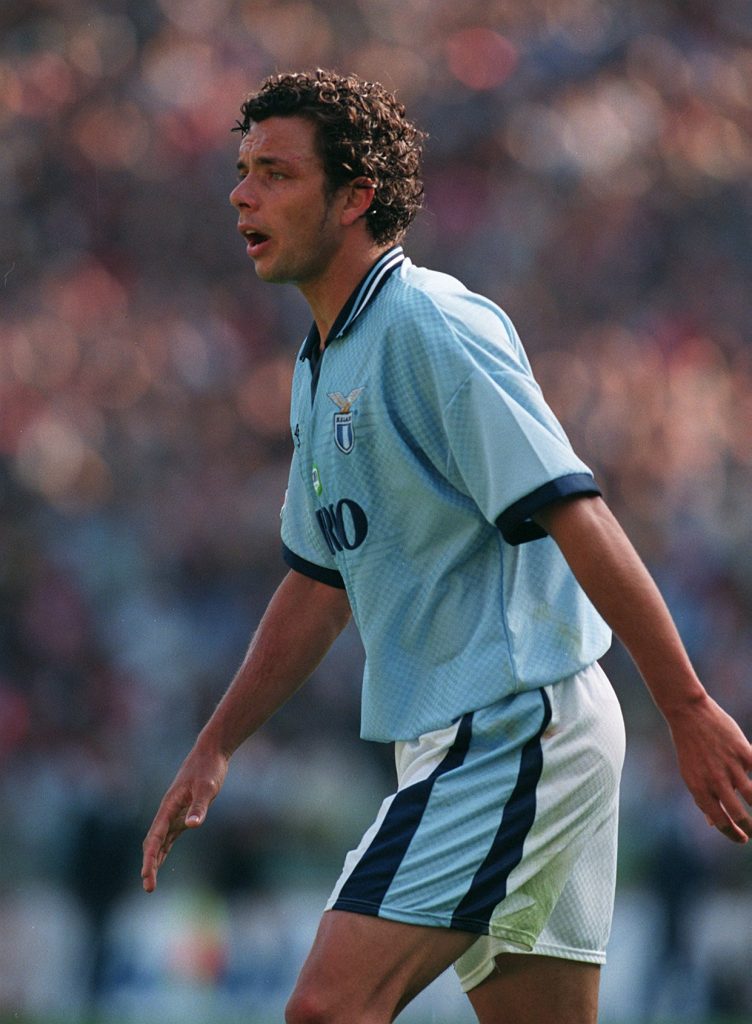The captain of the winners of the African Cup of Nations Final Neil Tovey of South Africa holds the cup aloft after President Mandela presented it to him. South Africa won 2-0. Mandatory Credit: Mark Thompson/ALLSPORT. Bottom pictures: Getty.
The South African football magazine Kickoff is gone, after 28 years – another casualty of the crisis in print media. Weirdly enough, there seems to be no business case for a magazine about the country’s most popular sport – thanks mainly to the robotic greed of Alphabet Inc and Meta Platforms Inc, who have stolen almost all the advertising revenue that used to flow to print titles until about a decade ago.
But the slow-motion collapse of South Africa’s football dream is also part of this story, because Kickoff documented that dream. In its early years, it covered the blossoming of the domestic league and the rise of the new national side – and celebrated the possibility that South Africa could become a great football nation in the wake of democracy.
 Mark Fish, Lazio (Photo by Michael Steele/EMPICS via Getty Images)
Mark Fish, Lazio (Photo by Michael Steele/EMPICS via Getty Images)In 1994, when I was 18, I would rush off to my local CNA every week to buy my copy of Kickoff, and then go straight to the KFC restaurant next door. While chowing my two-pieces-and-chips, I would chow the weekly transfer roundup.
The greasy bliss of fried chicken merged with the patriotic thrill of discovering which Bafana stars were finding glory abroad. Fenerbahce want John “Shoes” Mosheou! Doctor Khumalo is going to Argentina! Sizwe Motaung is going to Spain! Leeds United want Phil Masinga!
These were all players I had seen playing in the flesh at Hartleyvale stadium, just down the road. And now they were blowing up over the seas. It was incredible.
And then, after Bafana Bafana’s 1996 Africa Cup of Nations triumph, the buyers of South African players became even bigger. Mark Fish even pulled on the pale blue shirt of Lazio, a club so steeped in Roman glamour it seemed to barely exist in the same physical dimension as Fish and the rest of us.
As it turned out, Fish was indeed not good enough for Lazio – but he adapted and found his level at Barnsley and then Bolton Wanderers. Week by week and year by year, South African players were making their mark. Quinton Fortune thrived at Manchester United. Lucas Radebe skippered Leeds during their title-chasing peak. In due course, Benni McCarthy lifted the Champions League trophy with Porto.
It figured that Rob Moore, the founder of Kickoff, went on to become a crafty football agent, hawking the likes of McCarthy, Steven Pienaar, Aaron Mokoena and Sibusiso Zuma to European clubs. A pugnacious salesman from a working-class background, Moore brought freakish drive and tenacity to his work. He upped sticks from Cape Town to Barcelona, where he signed up a lucrative stable of players.
A few years later, when I worked as a football reporter, Moore was a reliably grumpy source. If you rang him up on his Spanish number, he always had time for a moan and a gossip. You were guaranteed to endure a long tirade about the raw deal his players were getting from whoever was coaching Bafana at the time. But Moore knew his stuff, and still does. He can spot talent and guts from 10 000km away.
And like all of us, Moore expected South Africa’s hotbed of football talent to get even hotter after the 2010 World Cup, due to massive investment in infrastructure and grassroots coaching. We all did, but we got a cold bed instead: a chronically weak national men’s team, and a slickly packaged but mediocre PSL. The reasons for this decline are many; a mixture of South African Football Association ineptitude and corruption, decades of short-termist profit-taking by PSL club owners, a refusal to research and follow best practice and a social backdrop of deepening poverty and trauma.
And the proof is in the elite exports or lack thereof: there are currently zero South African players working in the English Premier League, La Liga, the Bundesliga or Serie A.
By contrast, Bafana’s 1998 World Cup squad featured seven players based in those four big leagues, plus several more based at big clubs in the Netherlands, Russia and Turkey.
Nowadays our best player, Percy Tau, plays for Egypt’s Al Ahly – a great club, but far from the pinnacle of the game.
While Banyana Banyana are queens of the African stage, South African men’s football is an obscure backwater again, as it was during apartheid. And we don’t even have Kickoff anymore to point the way forward.